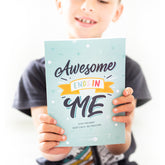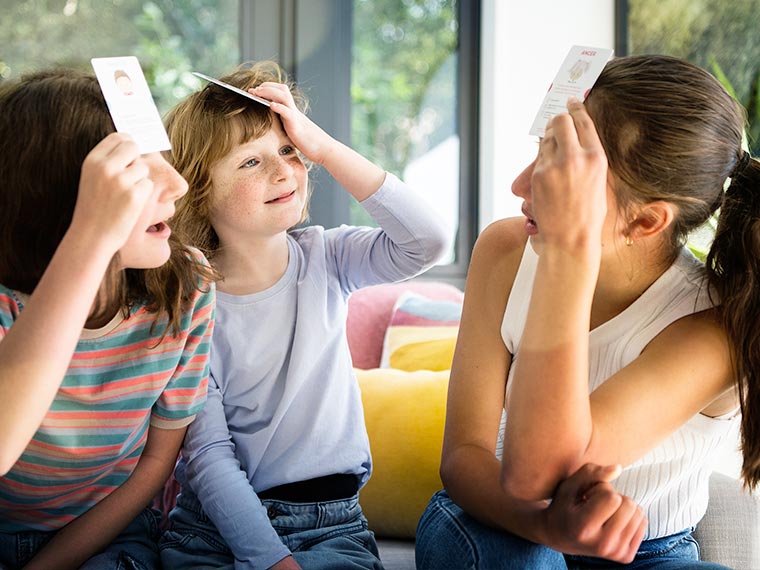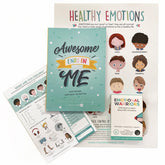5 Fun and Engaging Family Games to Teach Kids about Emotions
Unlocking the power of emotions in kids is a game-changer!
Research proves that teaching children how to manage their emotions sets them up for success. By honing their emotional intelligence, kids can learn how to better navigate challenging situations, show more empathy and compassion, and develop better problem-solving skills. They can also do better at school and build rock-solid relationships. With these essential life skills, they can unlock their full potential, embrace a brighter happier future with better overall well-being.
One enjoyable way to engage the whole family in learning about emotions is through interactive games and our Emotional Warriors Card Game is the perfect resource to enhance the learning experience, and best of all make it easy and fun. You could even play these around the dinner table. By incorporating this into your daily routine it won't feel like homework!

Here are 5 games you can try:
- Emotion Charades: A classic game that encourages children to express and interpret emotions through body language and facial expressions. Take turns choosing a card and acting out the emotions without speaking. The rest of the family guesses the emotion being portrayed. This game sparks lively discussions about how emotions are expressed and recognised.
- Emotion Memory Game: Shuffle the Emotional Warriors cards and lay them face down, then take turns flipping over two cards to find matching emotions. As you play, use the questions and prompts to discuss experiences or situations that might elicit each emotion. This will help to deepen the understanding of emotions in different contexts.
- Emotion Storytelling: Encourage each family member to tell a story that explores a specific emotion. They can describe a situation or a character experiencing that emotion and how they navigate it. Use the Emotional Warriors cards if you get stuck. This activity fosters empathy and understanding, as well as encourages children to reflect on their own emotional experiences.
- Emotion Guessing Jar: In this game, fill a jar with small pieces of paper, each containing an emotion word, or you can use the Emotional Warriors cards. One by one, each family member picks a piece of paper from the jar and acts out the emotion without speaking. The rest of the family guesses the emotion being portrayed, creating a fun and engaging way to practice emotional recognition and expression.
- Emotion Art Gallery: Each family member creates an artwork that represents a specific emotion using various supplies - try coloured pencils or crayon, paint or even collage. Display the artwork as an emotion gallery and encourage family members to describe their artwork and the emotions they created. This activity promotes creativity, self-expression, and emotional exploration.
If you haven't seen our Emotional Warriors Card Game before it features 36 beautifully designed emotions cards depicting 18 emotions. The cards prompt players to discuss and reflect on their emotional experiences and encourage children to identify and express emotions while promoting positive discussions around emotional well-being. There is even a card with 2 bonus resilience-building activities to help kids learn how to manage emotions effectively.
Playing fun and interactive family games is an excellent way to teach your kids about emotions while also strengthening family bonds. Remember, ALL emotions are a normal part of life, and helping children develop emotional intelligence will set them up for success in their personal and social lives.
---





 Take advanatage of our special deals:
Take advanatage of our special deals:









